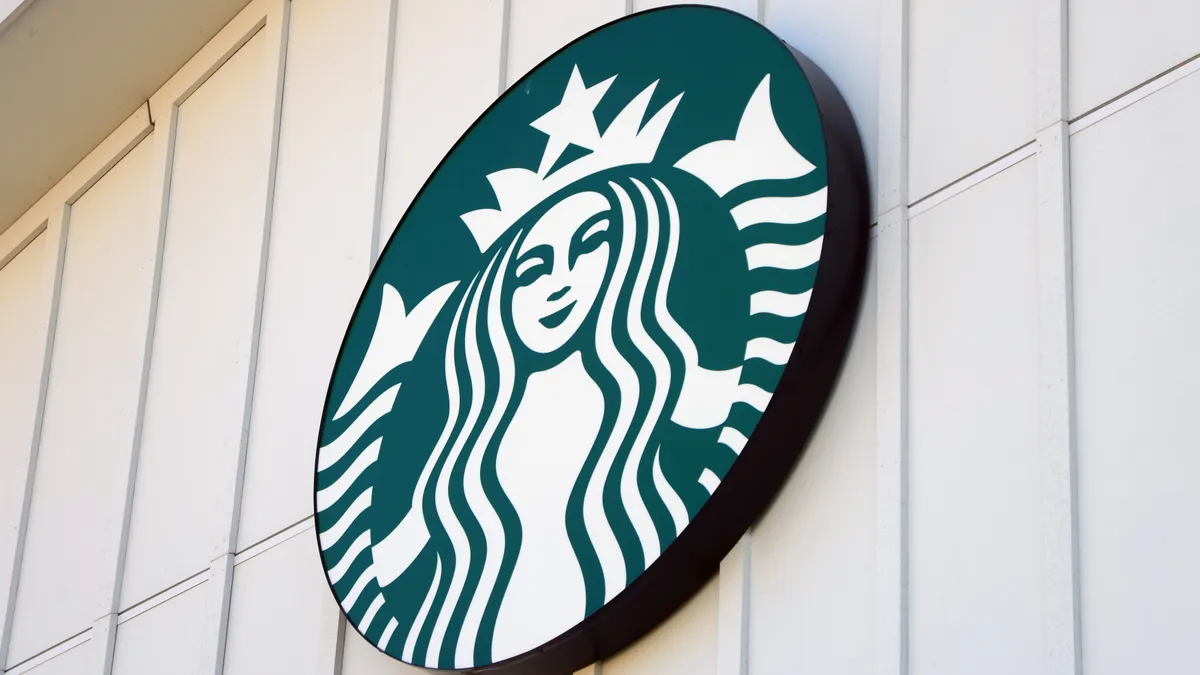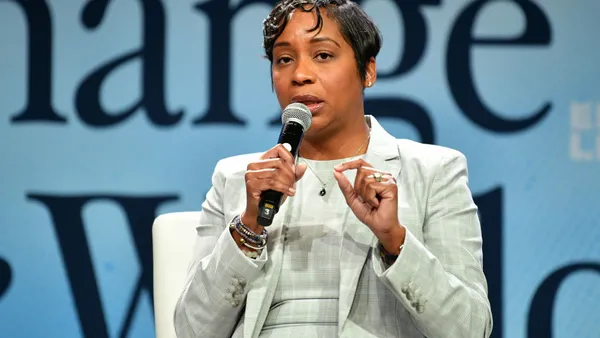UPDATE: August 14, 2023: This piece has been updated with comment from Starbucks.
Dive Brief:
- The Federal Court of the Eastern District of Washington dismissed the National Center for Public Policy Research’s lawsuit against Starbucks over diverse hiring practices on Friday, according to court records.
- Starbucks argued the NCPPR, which accused the company of anti-White discrimination, was not a proper representative of shareholder interests, and that the complaint — ostensibly a shareholder suit — was intended to hurt Starbucks’ business.
- The NCPPR is one of a cluster of right-wing activist groups attacking DEI initiatives at major employers, inclusion of LGBTQ people in public life, and schools of historical interpretation that argue America has a racist history.
Dive Insight:
In 2020, Starbucks linked some parts of executive compensation to the fulfillment of its DEI goals, In March 2022, the NCPPR — through the American Civil Rights Project, a conservative law firm — demanded Starbucks retract its DEI proposals, according to Starbucks’ motion to dismiss. Starbucks’ board considered and rejected the demand. The NCPPR filed suit in August 2022, in a county court in Spokane, Washington. Starbucks succeeded in moving the suit to federal court in November.
NCPPR, in its lawsuit, said that efforts to increase the number of non-White workers in Starbucks’ workforce; allocating 15% of the company’s spend toward minority-owned and focused media companies; and increasing spending on diverse suppliers violated U.S. and state civil rights laws and exposed the company to litigation risks. Taken together, NCPPR alleged those policies amounted to a breach of fiduciary duty.
Starbucks said it remained committed to its DEI efforts, which it said are part of its mission.
“We are pleased with the court’s decision to dismiss this action,” a Starbucks spokesperson wrote in an email to Restaurant Dive.
Scott Shepard, director of the NCPPR’s Free Enterprise Project, said the court decision did not change their determination to rollback DEI programs.
“We were shocked and disappointed by the district court's decision, but wish to wait for the judge's written order and decision before commenting further about that proceeding,” Shepard said.
Starbucks’ reputation as a progressive employer has historically been an asset for the brand, differentiating it from other restaurant companies. Though that image was tarnished by the company’s response to Starbucks Workers United’s union organizing, Starbucks has continued to highlight its workforce diversity and benefits. The fierce competition for restaurant labor kicked off by the COVID-19 pandemic may have eroded Starbucks’ edge by driving wages up and pushing other QSR chains to add benefits, like college tuition options.
According to Starbucks, NCPPR — which owns 56 shares of Starbucks stock — has a long history of unpopular shareholder motions, including a motion that would have forced Starbucks board nominees to disclose their personal political beliefs. That motion garnered 1% of shareholder votes in 2019.
Starbucks has also faced shareholder activism from the opposite side of the political spectrum, with shareholders backing a proposal in March advanced by labor pension funds to review the company’s adherence to the International Labor Organization’s standards.














